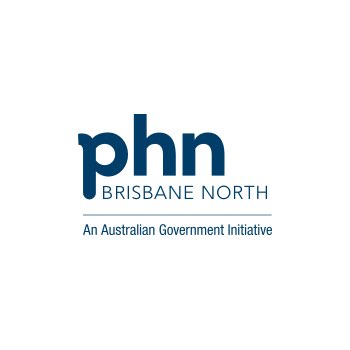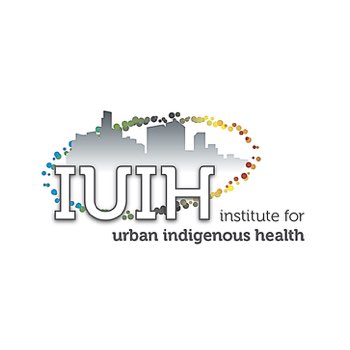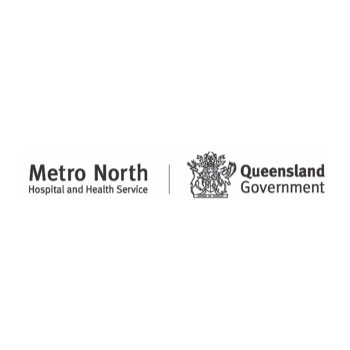

Aboriginal and Torres Strait Islander social and emotional wellbeing
Overview
Facts and figures
30.1% of Indigenous adults report high or very high levels of psychological distress, nearly 3 times the rate reported by other Australians.
GPs report they are 2 to 3 times more likely to manage mental health problems related to substance use in Indigenous patients than in other patients.
The national suicide rate for Indigenous Australians is twice that of non-Indigenous Australians.
For Indigenous Australians between 15 and 19 years of age, the suicide rate is 5 times higher than for non- Indigenous Australians.
Indigenous people with substance use, and/or mental health disorders, require a greater number of episodes of care to effectively treat their condition.
Key documents
National cultural respect framework
National strategic framework for Aboriginal and Torres Strait Islander peoples mental health and social and emotional wellbeing
Reconciliation Action Plan - Mento North Hospital and Health Service
Reconciliation Action Plan - Brisbane North PHN
Reconciliation Action Plan - QLD Government
Objectives and actions
Action
Planned completion
Status
7.1.1
Ensure appropriate Aboriginal and Torres Strait Islander representation on Brisbane North PHN’s partnership and governance groups
Planned completion
Ongoing
Status
On track
7.1.2
Establish additional avenues for input to services by people with a lived experience who are Indigenous and their Carers
Planned completion
2018/2019
Status
On hold
7.1.3
Review Consumer satisfaction survey processes within PHN-commissioned mental health services to make them more culturally responsive and encourage other organisations to improve the cultural responsiveness of their consumer satisfaction surveys
Planned completion
2021/2022
Status
On hold
Action
Planned completion
Status
7.2.1
Support the further development of social and emotional wellbeing teams within Aboriginal Community Controlled Health Services (ACCHSs), Metro North Health and NGOs
Planned completion
Ongoing
Status
Completed
7.2.2
Require PHN-commissioned services working with Aboriginal and Torres Strait Islander People to embed the Cultural Respect Framework and Social and Emotional Wellbeing Framework into their organisational systems and processes and encourage providers across the region to adopt these or similar approaches
Planned completion
2019/2020
Status
On hold
7.2.3
Provide cultural responsiveness training to GPs, other medical practitioners, mainstream service providers and healthcare practitioners working in forensic settings
Planned completion
Ongoing
Status
On track
7.2.4
Identify and promote best practice case studies of cultural responsiveness
Planned completion
2019/2020
Status
On hold
7.2.5
Continue to develop specific mental health, suicide prevention and alcohol and other drug care pathways for Aboriginal and Torres Strait Islander People in HealthPathways and ensure they are culturally responsive
Planned completion
2020/2021
Status
On track
Action
Planned completion
Status
7.3.1
Work with relevant organisations and services to review and improve the NDIS’s processes for Aboriginal and Torres Strait Islander peoples
Planned completion
Ongoing
Status
On track
Updated
7.3.2
Explore options for making ‘soft entry’ available through a greater number of mainstream mental health services, including through use of an Aboriginal and Torres Strait Islander worker as first point of contact for Aboriginal and Torres Strait Islander service consumers
Planned completion
2021/2022
Status
On hold
7.3.3
Strengthen partnerships between ACCHSs and general practices offering after hours care
Planned completion
Ongoing
Status
On hold
7.3.4
Review eligibility criteria for PHN-commissioned mental health services to identify and resolve any access barriers for Aboriginal and Torres Strait Islander peoples
Planned completion
2019/2020
Status
On hold
Action
Planned completion
Status
7.4.1
Strengthen work across services and sectors and between clinical and non-clinical services, including through referral, assessment and joint case management, to ensure holistic, person-centred care that takes into account issues such as transport, housing and income
Planned completion
2019/2020
Status
On track
7.4.2
Establish linkages between ACCHSs and mainstream mental health services, including community mental health, alcohol and other drug treatment services, primary healthcare practitioners and psychiatrists
Planned completion
Ongoing
Status
On hold
Updated
7.4.3
Increase the range of primary healthcare services readily accessible by Aboriginal and Torres Strait Islander peoples by improving provider partnerships
Planned completion
Ongoing
Status
On track
Action
Planned completion
Status
7.5.1
Review the methodology for the regional population health survey to explore opportunities for culturally responsive data collection on mental health and wellbeing of Aboriginal and Torres Strait Islander peoples
Planned completion
Ongoing
Status
On hold
7.5.2
Strengthen the focus on services delivered to Aboriginal and Torres Strait Islander peoples by better harnessing available data on Aboriginal and Torres Strait Islander health, including from Metro North Health’s integrated health information system
Planned completion
Ongoing
Status
On hold
7.5.3
Ensure investments in new or existing Aboriginal and Torres Strait Islander mental health, social and emotional wellbeing services are appropriately evaluated and enable community-led research; use of culturally responsive measurement methods; and participatory action research methods
Planned completion
Ongoing
Status
On hold
Action
Planned completion
Status
7.6.1
PHN and Queensland Health funded mental health services are to demonstrate effective strategies for improving cultural responsiveness and accessibility to services by Aboriginal and Torres Strait Islander peoples
Planned completion
2019/2020
Status
Completed
7.6.2
Hold regular networking and best practice forums for Aboriginal and Torres Strait Islander and non-Indigenous healthcare staff
Planned completion
Ongoing
Status
Completed
7.6.3
Establish an interchange program between mainstream and Aboriginal and Torres Strait Islander health service
Planned completion
2020/2021
Status
On track
Action
Planned completion
Status
7.7.1
Promote implementation of appropriate organisational processes within mental health services to identify, report and act on racism and discrimination and educate Service Consumers and staff about these processes.
Planned completion
2022/2023
Status
On track
7.7.2
Use regional publications and newsletters to educate people about the effects of racism on healthcare for Aboriginal and Torres Strait Islander peoples
Planned completion
Ongoing
Status
On track
Action
Planned completion
Status
7.8.1
Identify options for culturally responsive residential rehabilitation services for Aboriginal and Torres Strait Islander peoples experiencing substance abuse and for support to successfully transition people exiting these facilities into the community
Planned completion
2018/2019
Status
Completed
7.8.2
Explore the potential to extend existing outreach models delivered by mental health services to provide Aboriginal and Torres Strait Islander peoples with support about living skills
Planned completion
Ongoing
Status
Completed
7.8.3
Investigate options for safe places for those living with people with alcohol and other drug dependence and/or mental health issues.
Planned completion
2022/2023
Status
notstarted
7.8.4
Assess national models for patient transport services and available existing local resources that assist with transport to improve access to healthcare.
Planned completion
2021/2022
Status
On track
7.8.5
Explore options for services that better respond to the needs of Aboriginal and Torres Strait Islander children and young people experiencing mental health issues, and to their Families
Planned completion
2019/2020
Status
Completed
7.8.6
Advocate for increased funding to improve and expand safe accommodation for homeless Aboriginal and Torres Strait Islander peoples living with mental health and alcohol and other drug use issues
Planned completion
2019/2020
Status
Completed
Governance
The Aboriginal and Torres Strait Islander Engagement Steering Group was established to provide the PHN with strategic guidance and local knowledge to assist with the planning, delivery and evaluation of the Aboriginal and Torres Strait Islander Engagement Project. The Group was comprised of high-level representation from Metro North HHS, the Institute of Urban Indigenous Health, and the PHN. The Group met regularly through 2017 and 2018 to oversee efforts to enhance Aboriginal and Torres Strait Islander engagement, including through the implementation of the Yarn It Up engagement activities to support Planning For Wellbeing Chapter development.
The Aboriginal and Torres Strait Islander Engagement Steering Group is no longer active, following review and refinement of purpose. The focus has now shifted to developing an updated Statement of Intent across the organisations to progress joint priorities.



Membership
Ben Thompson
General Manager for MATSICHS
Institute for Urban Indigenous Health
Paul Drahm
A/Director, Aboriginal and Torres Strait Islander Health Unit
Metro North Hospital and Health Service
Naomi Laauli
Manager, Engagement & Planning
Brisbane North PHN
Martin Milne
Executive Manager, Commissioning
Brisbane North PHN
Achievements
Planning for Wellbeing acknowledges the strong and well-established commitment to an holistic and whole-of-life focus to social and emotional wellbeing held by Aboriginal and Torres Strait Islander peoples. This holistic perspective recognises the strength of relationships between individuals, family and community, and also the impact on the individual of connection to land, culture, spirituality and ancestry. The shared objectives within chapter Seven of Planning for Wellbeing reflect this understanding of social and emotional wellbeing, and are focused on strategies to achieve it.
A summary of the key achievements against the eight shared objectives is included below.
Summary of Achievements
The actions to achieve this objective are focused on ensuring appropriate avenues for the Indigenous voice to actively contribute to all facets of program design and delivery. In support of this, the PHN has actively engaged Aboriginal and Torres Strait Islander representatives to sit on a number of the partnership and stakeholder groups that supporting implementation of Planning for Wellbeing.
The actions to achieve this objective include strategies to ensure that people working with Aboriginal and Torres Strait Islander people are working in culturally responsive ways. The broader sector has benefited from the valuable insights and guidance included within the Cultural Respect Framework 2016 – 2016 for Aboriginal and Torres Strait Islander Health [1], and the National Strategic Framework for Aboriginal and Torres Strait Islander Peoples’ Mental health and Social and Emotional Wellbeing 2017 – 2023 [2]. All Qld Health and PHN commissioned services are contractually required to ensure their practitioners are appropriately skilled and experienced, and engage in ongoing professional development regarding culturally responsive practices.
[1] Cultural Respect Framework 2016 – http://www.coaghealthcouncil.gov.au
[2] National Strategic Framework for Aboriginal and Torres Strait Islander Peoples’ Mental health and Social and Emotional Wellbeing 2017 – 2023
The actions to achieve this objective are focused on addressing barriers to access for Indigenous people, including access to the National Disability Insurance Scheme (NDIS). In support of addressing these barriers, the Qld Government funded the Institute for Urban Indigenous Health (IUIH) to prepare Aboriginal and Torres Strait communities in the region for the NDIS rollout. This work included the development and implementation of readiness strategies; assisting Aboriginal and Torres Strait Islander people with a disability to apply for the NDIS; and developing a culturally appropriate service model for the provision of disability services to Aboriginal and Torres Strait Islander people.
Work in this area has focused on improving relationships between Aboriginal and Torres Strait islander services, and other mainstream services within the region, including general practice, mental health and alcohol and other drug services. Examples of improvements in integration include:
- Within the National Suicide Prevention Trial (NSPT) – where a large mainstream psychology practice partnered with a network of Aboriginal and Torres Strait Islander organisations to ensure culturally appropriate suicide prevention services would be provided
- Integrated Team Care (ITC) – where IUIH provides outreach support to mainstream healthcare organisations to improve cultural responsiveness of services
- Increasingly, other mainstream mental health and alcohol and other drug services are connecting with IUIH to establish more collaborative approaches to care.
Work in this area has included the active involvement and contribution of local Aboriginal and Torres Strait Islander organisations and community stakeholders in local and national evaluation activities. For example, to support evaluation of the Aboriginal and Torres Strait Islander activities within the NSPT, the Commonwealth Government appointed Thirrili [1] – an Aboriginal organisation committed to addressing social disadvantage. The PHN supported and encouraged all local Aboriginal and Torres Strait Islander organisations involved in delivering the NSPT to meet with representatives from Thirrili, to ensure their experiences and contributions were included in the evaluation.
Actions to achieve these two objectives are largely being driven by the Reconciliation Action Plans of the Qld Government, the HHS and the PHN:
- Queensland Government Reconciliation Action Plan (Stretch) – 2018 – 2021[1]
- Metro North Hospital and Health Service Reconciliation Action Plan (Innovate) – May 2018 – May 2020 [2]
- Brisbane North PHN Reconciliation Action Plan (Reflect) – June 2019 – June 2020 [3]
[1] https://www.datsip.qld.gov.au/resources/datsima/publications/policy/qgov-rap.pdf|
[2] https://metronorth.health.qld.gov.au/ciss/wp-content/uploads/sites/7/2018/06/reconciliation-action-plan.pdf
[3] https://www.brisbanenorthphn.org.au/page/about/our-reconciliation-action-plan/
Work in this area has focused on identifying and exploring ways to address service gaps, as well as ensuring service options better meet the needs of Indigenous people. Within the area of suicide prevention, the PHN convened a Brisbane North Aboriginal and Torres Strait Islander Community Implementation Team to provide oversight and guidance to support effective implementation of the NSPT. This Community Implementation Team has provided considerable insight into the needs of the Aboriginal and Torres Strait Islander communities in the region, and has lead trials of innovative activities to respond to service gaps within the region.
Success stories
Supporting GPs to be more culturally responsive
Objective 7.2: Increase cultural responsiveness amongst services and healthcare practitioners Action 7.2.3: Provide cultural responsiveness training…
Expanded suicide prevention services for Aboriginal and Torres Strait Islander families
Objective 7.4: Strengthen integration between services working with Indigenous people Action 7.4.1: Strengthen work across…
Integrating social health and wellbeing into a system of care
Objective 7.4: Strengthen integration between services working with Indigenous people Action 7.4.1: Strengthen work across…

